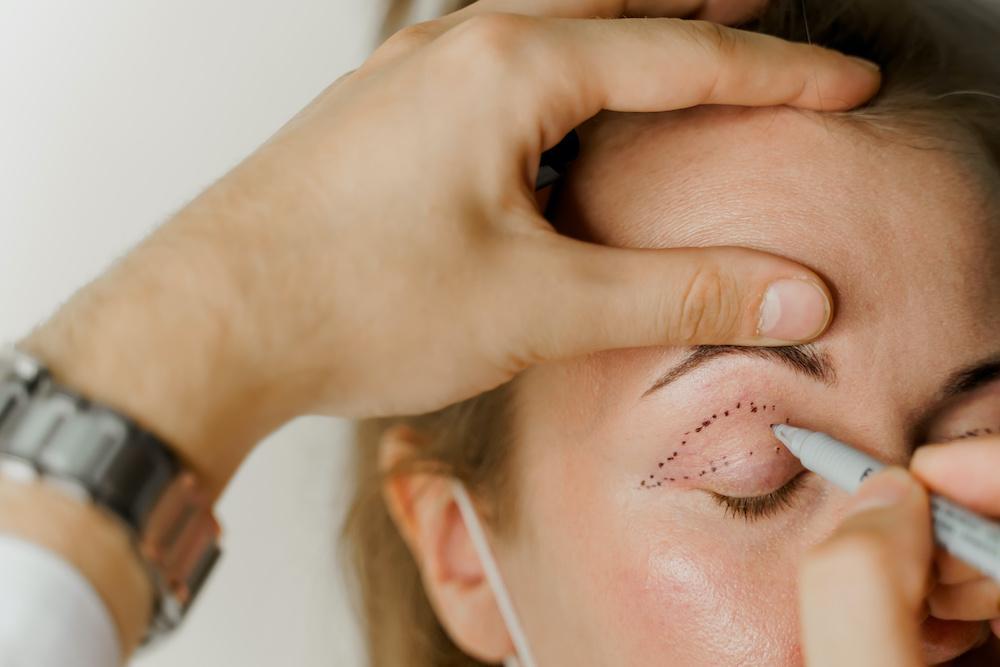What Causes an Inverted Eyelid?

Your eyelids are the unsung heroes of your vision health, working tirelessly all day long to keep your eyes moist and free of tiny particles that could cause serious vision problems. Yet most of us dont give our eyelids a second thought until they start causing problems.
While eyelid issues dont affect everyone, theyre not all that uncommon. In fact, the American Academy of Ophthalmology says that one specific lid problem entropion affects millions of Americans, mostly over age 60.
Entropion develops when your eyelid is inverted or turns inward. Sounds simple, but it can cause a lot of problems.
At Rostami OPC, Soheila Rostami, MD, and Joseph Davidson, MD, know the importance of managing entropion early. At their Reston, Virginia, practice, they offer both surgical and nonsurgical approaches that can help.
Why entropion happens
Entropion usually happens because of an underlying issue that affects the shape, structure, or function of your eyelids. Although its possible to have entropion on your upper eyelid, its much more common on the lower lid.
Often, the lower lid starts to turn inward as skin sags and we lose muscle tone due to the effects of aging. Thats why entropion tends to happen more frequently as we get older. Other possible causes include:
- Eyelid scarring
- Eye infection
- Traumatic damage to the lid
- Prior eyelid surgery
- An underlying medical problem, like a stroke
- Lid or eye tumors
- Long-term eyelid inflammation
- Muscle spasms in your eyelids
Determining the cause of entropion plays an important role in deciding which treatment option will work for you.
Regardless of the underlying cause, most people with entropion experience similar symptoms, like:
- Eye redness
- Eye irritation and discomfort
- Gritty sensations
- Itching or burning sensations
- Extreme sensitivity to light
- Feeling like an object is poking your eye
- Excessive tearing
If entropion is associated with an infection, you might notice a yellowish or whitish discharge from your eyelid.
How entropion can damage your eyes
Entropion doesn’t just cause annoying symptoms. Left untreated, it can lead to serious vision problems, including vision loss.
If you have entropion, theres a good chance that your eyelashes are continually scraping against your corneas, the clear, dome-shaped covering that rests over your irises (the colored part of your eye).
All of that repeated contact wears on the corneas surface, leading to tiny scratches that can let bacteria in.
Without treatment, bacterial infection can lead to permanent vision loss. It could even lead to loss of your cornea. The key to preventing these problems is to schedule an office visit at the first sign of eye irritation or even earlier, if you notice that your lid is turning inward before you develop any symptoms.
Treating entropion
Sometimes, temporary entropion (including entropion due to a transient infection or inflammation) can be treated with lubricating eye drops or special contact lenses to protect the eye surface while the underlying problem heals.
Often, though, a more permanent solution is needed. In those instances, you might benefit from a different type of treatment, depending on the cause of your entropion.
For entropion caused by muscle spasms, injections of Botox® or Dysport® may help. These agents temporarily block nerve signals between your eyelid muscles and your brain.
If your entropion is due to scarring, skin laxity, or an underlying anatomical or mechanical issue, then surgery often is the best answer. Our doctors use advanced surgical techniques to restore and rebuild eyelids, correcting entropion so its complications can be prevented.
Find out whats causing your eye symptoms
Eye irritation and discomfort have lots of causes, but one thing is certain: These symptoms arent normal and in some cases, they can indicate a serious problem that could lead to permanent vision loss.
If you have unusual eye symptoms or changes in your vision, having an evaluation is the best way to make sure you get treatment as early as possible. To schedule your evaluation, call 571-568-8716 or book an appointment online with the team at Rostami OPC today.
